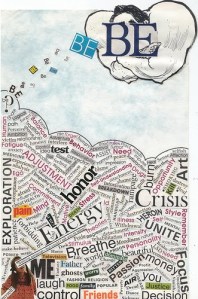
"Your Brain Online: Does the Web Change the Way We Think?" in the January 18th issue of Newsweek is a terrific refutation of our human webscapades -- the unquestioning assertion that any thought worth thinking is worth documenting and any documentation worth preserving needs to be online. Newsweek's cognitive beat columnist Sharon Begley argues that the Internet is not a wellspring for sparking innovation but a lap dog for rehash and retreat. Perhaps we're sparking up the wrong tree of knowledge when Evgeny Morozov writes:
"The Internet is causing the disappearance of retrospection and reminiscence -- our lives are increasingly lived in the present, completely detached from the most recent of pasts."
The political arena is a ripe example. How else to explain that the permanent Republication majority of 2004 became the second coming of the new deal by 2008 and boomerung backwards before the mid-terms were even penciled in? Ken Auletta's "Non-stop News" piece in the January 25th New Yorker offers the testimony of New York Times White House correspondent Peter Baker. Baker concludes that perspective is no longer "a calling" but a luxury:
"A reporter covering his beat ten years ago had the luxury of writing for the next day's newspaper. He had at least a few hours to call people, access information, to provide context."
Former White House Communications Director, Anita Dunn describes the rush this way: "When reporters call you to discuss a story, it's not because they're interested in having a discussion. They're interested in a response."
"Our minds struggle to discipline and deploy attention in an always-on milieu," says Howard Reingold. Focus is no longer a virtue but an indulgence -- one that we've lost the ability to command in others or respect in our own loss of concentration. levels that flicker like enfeebled WIFI signals.
"The ubiquity of information makes us less likely to pursue new lines of thought before turning to the Internet," according to Mihaly Csikszentmihalyi. Our own musings are tethered to electoral textings. If our ideas and our actions are not attention-grabbing they are invalidated by the surface noise that rumbles above the silence and stillness of these deeper contemplations. This deeper offline connection is what David Wallace Wells is railing against in the issue prior to Begley's piece when he questions the reverence towards hive mind or the notion that originality is an idle curiosity to a wired and wary world:
"Why are we so enamored with wikipedia, the signal achievement of the web 2.0 era when it has channelled so much intellectual energy into a reference project that is at best only as good as the book it replaces? Do we value knowledge so little that it excites us only when it is free?"
To the contrary the replacement of the fallen tree-in-the-forest metaphor with the positioning of search results as the proverbial radar argues for the kind of sense-making and correlative pattern-matching that falls outside the boundaries of software engineering or the Blackberry-screen-sized perspective-building of modern news analytics. That's the kind of reconstruction we experience when it's too late to prevent a terrorist from exploding in mid-stream. Not only is his name buried on the do-not-fly list but the context trailing explosions of the future will not fly either -- not in the unsustainable ways we have come to inform our sense-making machinery -- a process that feeds on fear to the impoverishment of perspective.
Says George Dyson: "Access to facts increases the need to correlate them, distinguish between primary and secondary matters, knowing when to prefer pure logic and when to let common sense take over." But there is no likelier a common fact base than there is a common sense arising from an evidentiary bias towards a common purpose or unifying theme.
Perhaps our reticence is not our ability to think independently but the trepidation that we'll be drowned out or spooked by dissenting voices: "Our knowledge seems more fragile since all facts are open, and thus open to challenge," writes Dyson. Another fault line for shattering confidence in the quest for truth-seeking is the notion that rumours can be attached to talking points the way explosives are fastened to motorcades. No matter how poorly improvised the falsehood it must be diffused or the accusation it carries takes on the payload of a grounded assertion, an emotional truth if not a supportable fact.
One way to hurdle wikipedia as a barrier to creativity, Dyson suggests, is to compare our pre-web notions of comprehensiveness with the virtual recognition that human knowledge is limited by its reach into an electronic form -- not by how we experience that understanding or petition it on our own behalf:
"What once required collecting all fragments of information to assemble a framework of knowledge now requires ignoring or removing unnecessary information to reveal the shape of the knowledge hidden within."


No comments:
Post a Comment